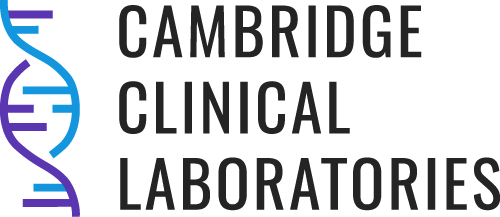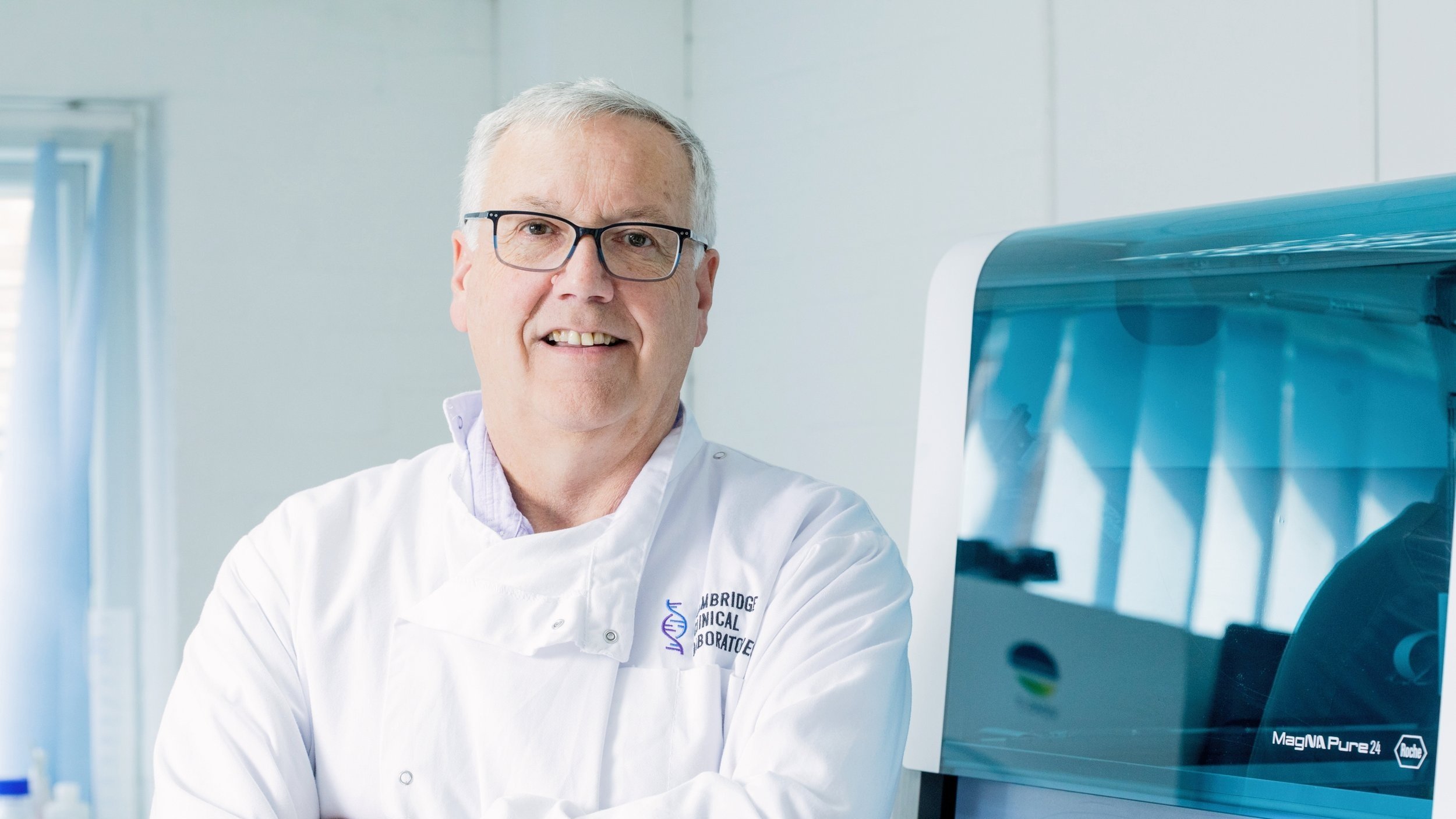Taking five with Dr Tony Cooke, CCL Chief Scientific Officer
CCL Chief Scientific Officer
Since we last spoke with Cambridge Clinical Laboratories Chief Scientific Officer, Dr Tony Cooke, we have seen Jonathan Shrewsbury, CCL’s new CEO, join the business. With that, naturally, the focus of the business has evolved.
We take five to find out what the focus for the lab is in 2023: -
Pre-Christmas we teased on LinkedIn that CCL would increase its focus on prevention in 2023. What does that mean?
Prevention, and early detection, would improve peoples health enormously in terms of survival – specifically in cancer. If you look at UK cancer statistics, we don’t compare well to the rest of Europe. According to Cancer Research UK 45% of all cancers are diagnosed at stage 3 or 4. That is way too late. Our NHS screening programmes are few – breast, cervical, colorectal (but starts at 59). If we can identify individuals with a genetic predisposition and a family history, they need to start screening earlier. This is what we’re working on at the moment – introducing a series of tests that give people the choice to manage their own diagnostic outcomes.
If you have a family history of cancer and it was aggressive, you can, with CCL, go on to look at your genetic predisposition – identifying what risk factors are in your genes – especially any indicators that you may be sensitive to aggressive forms of cancer. Once those tests are done you can develop an understand of your genetic risk and then make some lifestyle changes and implement regular screening.
For example, Angelina Jolie decided to have a double mastectomy in her 40s as prevention, because in her family she had aggressive breast cancer. When she had her genetic predisposition tested she found that she had a number of markers for aggressive breast cancer. She chose to have elective preventative surgery.
Understanding what your risk factors are allows you to make a more rational decision on what your screening programme should be.
What preventative / early detection tests do CCL offer already? And what are you looking at adding?
We have introduced the Oncimmune EarlyCDT lung cancer detection test, Proclarix for prostate cancer early detection, Epicheck which is a bladder cancer test, and we do FIT testing for colorectal cancer. We are looking at what else is available across the world to bring to the UK including for liver, skin and breast cancer.
How can the public access these tests?
CCL works with clinics and we have online portals that people can purchase tests from. Some tests will be supported by people’s insurance. These will generally be private tests, because the NHS don’t offer these, but they are not ridiculously expensive – these days less than the price of a tank of petrol. If we can help to catch cancer early, people will have a better chance of survival and a better chance of recovery. It will also relieve the cost on the NHS. The cost, once a patient is symptomatic, is enormous compared to treating it early. Prevention is not a big part of the NHS. Since Covid we have seen that people are more aware of managing their own health. They don’t have the idea now that the NHS is going to provide free health care for the rest of their lives. 18% of people in the UK have private healthcare cover now, so we can offer people a choice.
If someone took a test and a genetic marker was shown what would happen next?
It would depend on the test. If you had a family member with lung cancer and you had smoked, and your test indicated a risk - you have a choice. You could take an Oncimmune EarlyCDT lung cancer detection test each year to track any changes. Or if you get an indication that something is wrong you can push for follow up in the NHS or privately and it will be caught early before you’re symptomatic, improving your chances of recovery.
Is there anything else landing in 2023 that you’re particularly excited about?
We are expanding our services, and will be looking to go direct to the consumer - but with clinical support. There is a lot to be excited about. It is nice to move away from the Covid testing of the last few years and get back on track to where we were in 2019. We also have a bigger senior management team, with Jonathan Shrewsbury, our new CEO. He is working hard to support CCL to move to the next level.
What are the biggest challenges you face as a private business in the diagnostics industry?
Recognition of our quality and service. Most private labs are ignored by Government, when we could help to get through the backlog and overwhelming challenges that the NHS is facing. For example for bladder cancer - the test we are running Epicheck is a urine sample that can be done by post. There are 11,000 new cases a year, 80% of cases reoccur and 5,500 deaths a year, so 50% survival rate. Currently the diagnostic pathway is a cystoscopy and, if needed, an ablation treatment – it means you need to see a GP, consultant, book the procedure, have the procedure, have the analysis, and have a follow up meeting. With Epicheck you could do a urine test by post every six months, it is so accurate. The result could come to you automatically. That would take such a burden off the NHS. This could be replicated across other cancers. Through the Laboratory and Testing Industry Organisation, of which I am Scientific Advisory Board Chair, we have approached government and pitched this, we’ve had absolutely nothing back. We will offer it privately and reduce burden that way. The whole system needs to be changed.
And what are the opportunities open to you?
We are working with a number of cancer charities to introduce these tests and get them on the market. We have some clinical trials happening. It’s now a matter of getting the private healthcare system working and trying to do the work with the NHS to get them to adopt these systems too. Prevention is better than cure. Early detection improves survival. It saves money and saves lives. The NHS should be seriously looking at implementing this strategy.
Find out more: https://www.camclinlabs.co.uk/oncology

